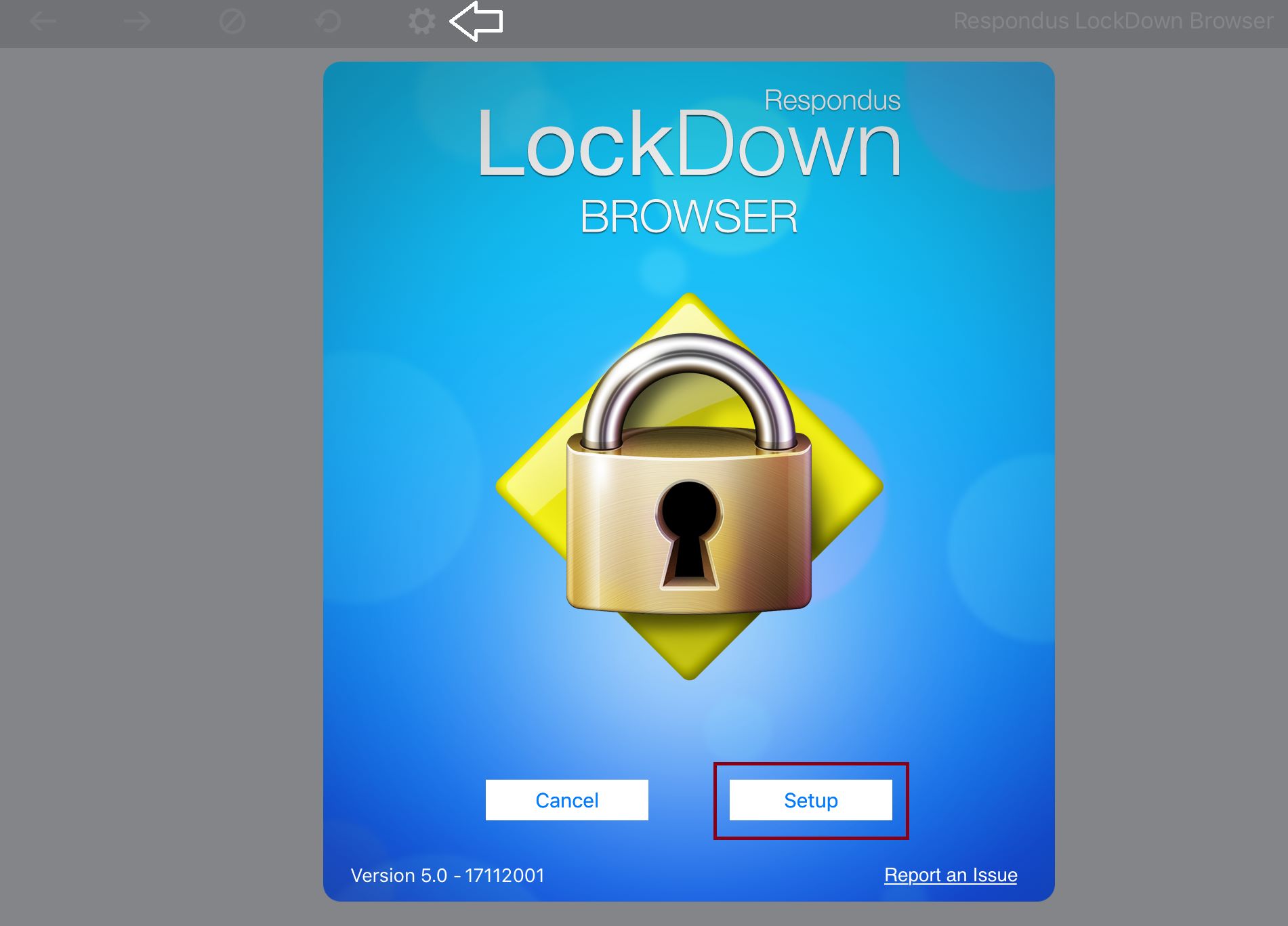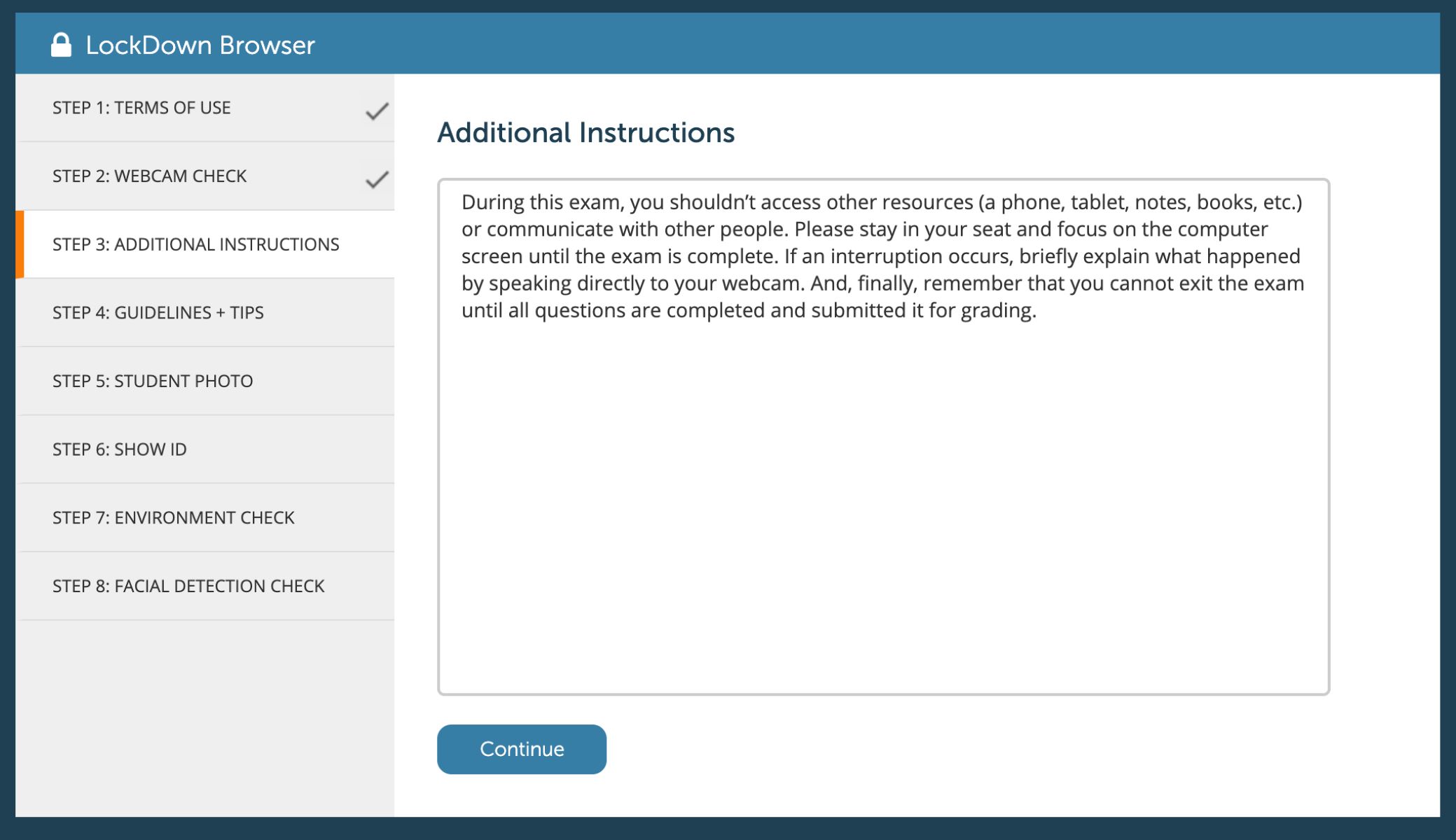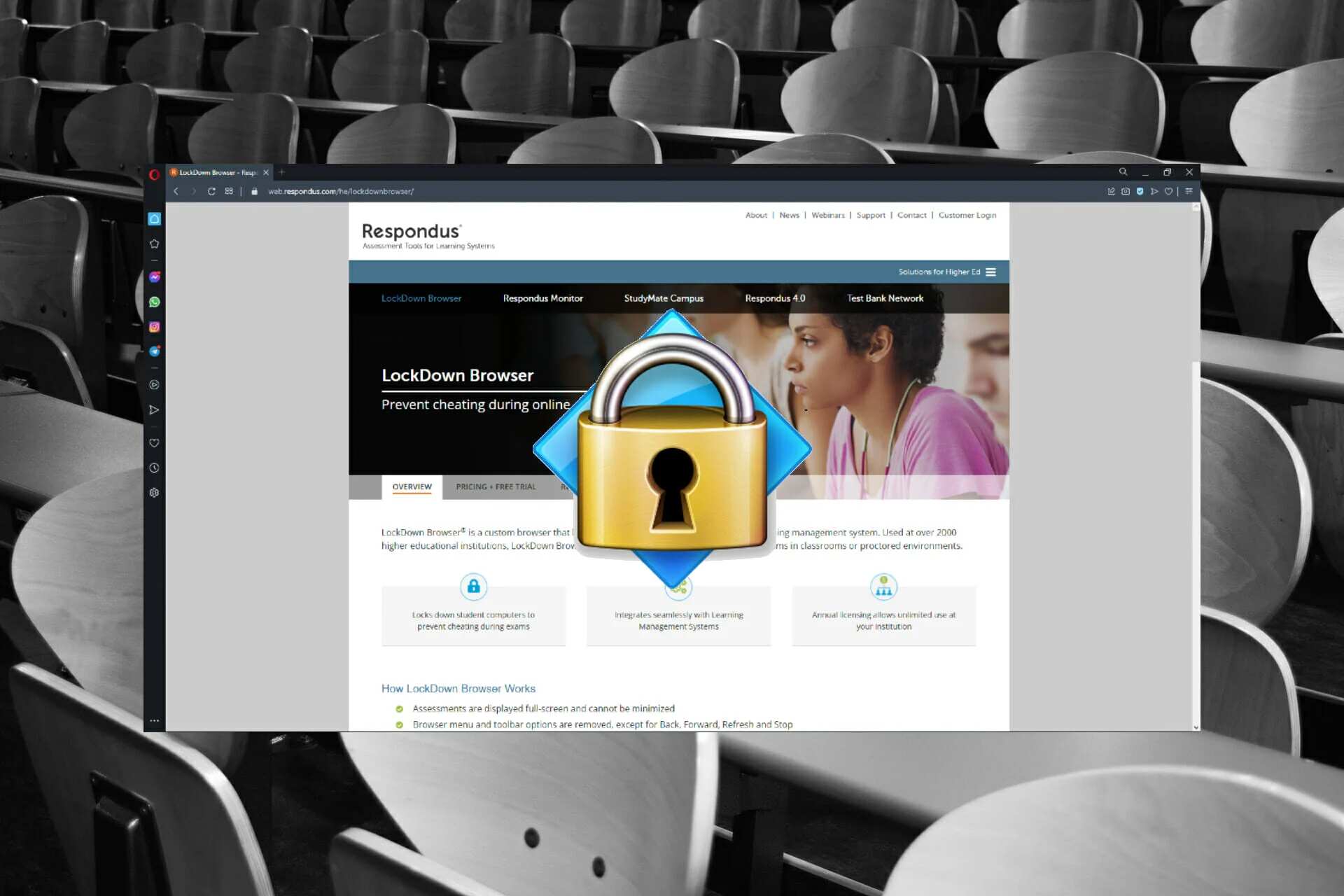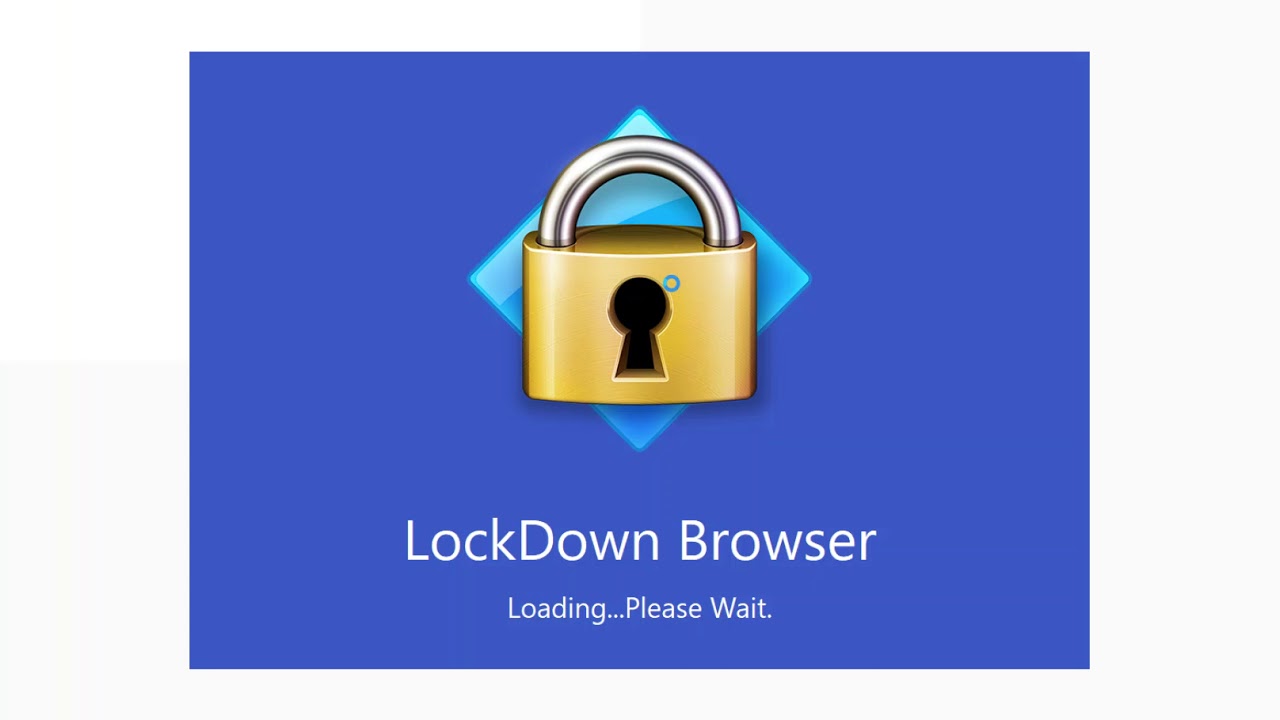Introduction
Lockdown browsers are designed to restrict users from accessing certain websites or applications during online assessments, ensuring academic integrity and preventing cheating. While these tools serve a crucial purpose in maintaining the credibility of online exams, there are instances where individuals may need to bypass the lockdown browser for legitimate reasons. Whether it's due to technical issues, accessibility concerns, or other valid circumstances, finding ways to navigate around the lockdown browser has become a topic of interest for many.
In this article, we will explore the concept of lockdown browsers, the reasons why individuals may seek to bypass them, and the potential risks and consequences associated with doing so. Additionally, we will delve into various methods that individuals may consider when attempting to bypass a lockdown browser, shedding light on the technical and ethical implications of such actions.
As the demand for remote learning and online assessments continues to rise, it's essential to understand the dynamics of lockdown browsers and the implications of attempting to circumvent their restrictions. By gaining insights into this complex landscape, individuals can make informed decisions and navigate the challenges associated with online assessments in a responsible and ethical manner.
Understanding Lockdown Browser
Lockdown browsers are specialized web browsers used by educational institutions to administer online exams securely. These browsers are designed to prevent students from accessing unauthorized resources, such as websites, applications, or other materials, during the examination period. By restricting access to external content, lockdown browsers aim to uphold the integrity of online assessments and minimize the risk of academic dishonesty.
Typically, lockdown browsers operate in a controlled environment, where specific features such as copy-paste functions, printing, and accessing other applications are disabled. Additionally, they may incorporate webcam monitoring and screen recording to deter cheating behaviors and ensure that students adhere to the exam guidelines.
One of the key features of lockdown browsers is their ability to lock down the computer's functionality, limiting the user's ability to navigate away from the exam interface. This ensures that students remain focused on the assessment without the temptation to seek external assistance or resources.
In essence, lockdown browsers serve as a virtual proctor, overseeing the examination process and maintaining a secure testing environment. They play a pivotal role in upholding academic integrity and fostering a fair and equitable assessment experience for all students.
Educators and institutions deploy lockdown browsers to mitigate the risks associated with online assessments, providing a level playing field for all students and safeguarding the credibility of academic qualifications. While the use of lockdown browsers has sparked debates regarding privacy concerns and technical limitations, their implementation remains a prevalent practice in the realm of online education and remote testing.
As the educational landscape continues to evolve, the role of lockdown browsers in ensuring the validity and reliability of online exams has become increasingly significant. Understanding the purpose and functionality of these specialized browsers is essential for both educators and students, as it underscores the importance of maintaining academic integrity in the digital age.
Ways to Bypass Lockdown Browser
When faced with the need to bypass a lockdown browser, individuals may explore various methods to navigate around the imposed restrictions. It's important to note that attempting to bypass a lockdown browser without proper authorization may violate academic integrity policies and lead to serious consequences. However, understanding the potential bypass methods can shed light on the vulnerabilities of these systems and the importance of continuously enhancing their security measures.
1. Virtual Machines
Utilizing virtual machine software allows individuals to create a separate operating system environment within their primary system. By running the lockdown browser within a virtual machine, users may attempt to access external resources or applications outside the virtual environment. However, it's crucial to recognize that this method may raise red flags as it deviates from the standard testing environment, potentially triggering security alerts.
2. Proxy Servers
Some individuals may consider using proxy servers to bypass the restrictions imposed by a lockdown browser. By routing their internet traffic through a proxy server, they aim to conceal their actual IP address and circumvent the browser's limitations. However, this approach may be detected by advanced monitoring systems, leading to academic integrity violations and severe penalties.
3. Screen Mirroring
In certain scenarios, individuals may attempt to use screen mirroring or casting applications to display the exam content on one device while accessing external resources on another. This method poses significant ethical concerns and undermines the principles of fair assessment, potentially compromising the validity of the examination process.
4. Browser Extensions
Some individuals may explore the possibility of using browser extensions or add-ons to manipulate the functionality of the lockdown browser. These extensions may attempt to override the browser's restrictions or alter its behavior, posing significant risks in terms of academic integrity and violating testing protocols.
5. Collaborative Cheating
In a troubling trend, individuals may resort to collaborative cheating by leveraging communication platforms or external assistance to bypass the lockdown browser's restrictions. This method not only undermines the integrity of the assessment process but also erodes the fundamental principles of academic honesty and individual accountability.
It's important to emphasize that the aforementioned methods are presented for informational purposes only and should not be pursued. Engaging in activities aimed at bypassing lockdown browsers can have severe repercussions, including academic penalties, disciplinary actions, and long-term consequences on one's academic and professional reputation.
As technology continues to evolve, educational institutions and assessment providers must remain vigilant in addressing the vulnerabilities associated with lockdown browsers and implementing robust security measures to uphold the integrity of online assessments. By fostering a culture of academic honesty and ethical conduct, the educational community can work towards creating a fair and trustworthy environment for online learning and evaluation.
Risks and Consequences
Attempting to bypass a lockdown browser entails a myriad of risks and consequences that extend beyond the immediate implications of violating testing protocols. Individuals who engage in such actions expose themselves to severe academic penalties, disciplinary measures, and long-term repercussions that can impact their educational and professional pursuits.
-
Academic Integrity Violations: Bypassing a lockdown browser constitutes a direct violation of academic integrity, undermining the fundamental principles of fair assessment and individual accountability. It erodes the credibility of academic qualifications and diminishes the value of educational credentials, tarnishing one's academic reputation.
-
Disciplinary Actions: Educational institutions take academic misconduct seriously and have established disciplinary frameworks to address violations related to online assessments. Students found attempting to bypass lockdown browsers may face disciplinary actions, including academic probation, suspension, or expulsion, jeopardizing their academic standing and future prospects.
-
Legal Ramifications: In certain cases, bypassing a lockdown browser may have legal implications, especially if it involves unauthorized access to digital resources or breaches of intellectual property rights. Individuals may find themselves entangled in legal disputes, facing potential lawsuits or legal consequences that extend beyond the academic realm.
-
Ethical Dilemmas: Engaging in activities aimed at bypassing lockdown browsers raises profound ethical dilemmas, challenging the principles of honesty, integrity, and responsible conduct. It undermines the trust and integrity of the educational system, impacting the broader academic community and perpetuating a culture of dishonesty.
-
Professional Repercussions: Academic misconduct resulting from attempts to bypass lockdown browsers can have enduring effects on an individual's professional trajectory. Employers and academic institutions scrutinize candidates' academic records and ethical conduct, and a history of academic dishonesty can impede career opportunities and professional advancement.
-
Personal Accountability: Beyond the external consequences, individuals must grapple with the personal ramifications of compromising their integrity. The erosion of self-respect, ethical values, and trustworthiness can have profound psychological and emotional impacts, shaping one's character and moral compass.
-
Long-Term Implications: The repercussions of attempting to bypass lockdown browsers can extend well into the future, influencing graduate school admissions, professional licensure, and other endeavors that require a pristine academic record. It can cast a shadow over one's academic achievements and erode the trust placed in their qualifications.
In light of these risks and consequences, it is imperative for individuals to uphold the principles of academic integrity, ethical conduct, and responsible behavior. By embracing a culture of honesty and integrity, students and professionals contribute to a robust and trustworthy academic environment, fostering a legacy of integrity and excellence for future generations.
Conclusion
In conclusion, the use of lockdown browsers in online assessments serves as a critical mechanism for upholding academic integrity and ensuring the fairness and validity of examinations. While the need to bypass lockdown browsers may arise due to various reasons, it is essential to recognize the ethical and academic implications associated with such actions. Attempting to circumvent the restrictions imposed by lockdown browsers can lead to severe consequences, including academic penalties, disciplinary actions, and long-term repercussions that extend beyond the immediate context of online assessments.
As the educational landscape continues to evolve, it is imperative for individuals to prioritize ethical conduct, integrity, and responsible behavior in their academic endeavors. Upholding the principles of academic honesty not only preserves the credibility of academic qualifications but also fosters a culture of trust, fairness, and accountability within the educational community.
Educational institutions and assessment providers play a pivotal role in addressing the vulnerabilities associated with lockdown browsers and implementing robust security measures to safeguard the integrity of online assessments. By leveraging advanced technologies, comprehensive monitoring systems, and proactive measures, they can mitigate the risks of academic misconduct and ensure a secure testing environment for all students.
Furthermore, fostering open dialogues and educational initiatives on the importance of academic integrity can empower students to make informed decisions and uphold ethical standards in their academic pursuits. By nurturing a culture of honesty, transparency, and ethical conduct, the educational community can collectively work towards creating a fair and equitable environment for online learning and evaluation.
Ultimately, the ethical and academic considerations surrounding lockdown browsers underscore the broader significance of integrity, accountability, and ethical behavior in the educational domain. By embracing these principles, individuals contribute to a legacy of trust, credibility, and excellence, shaping a future where academic achievements are built on a foundation of integrity and ethical conduct.

























